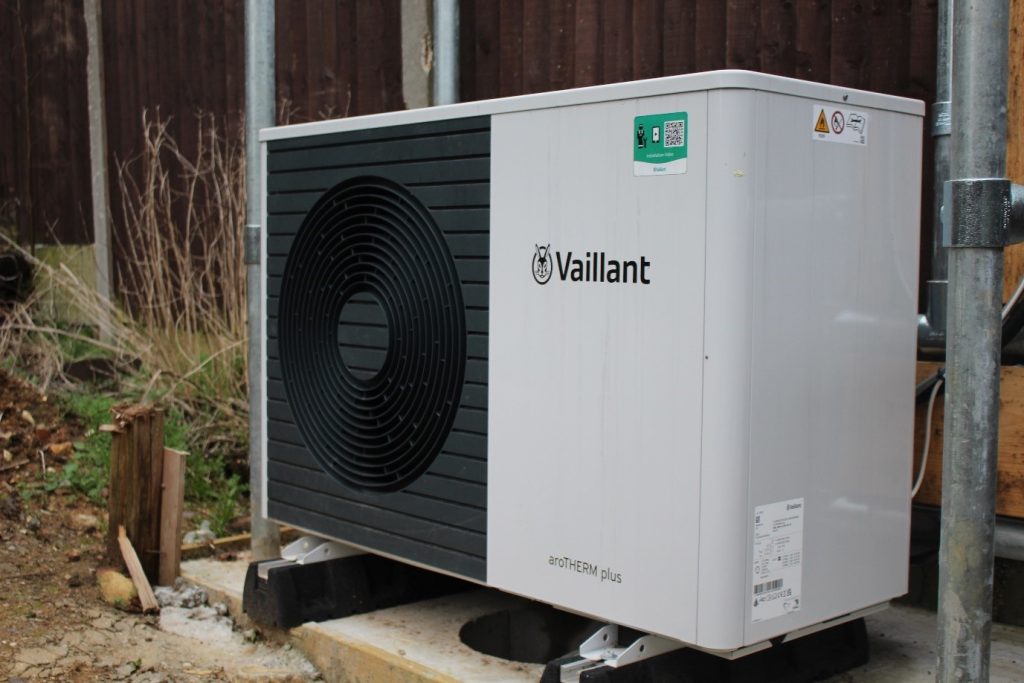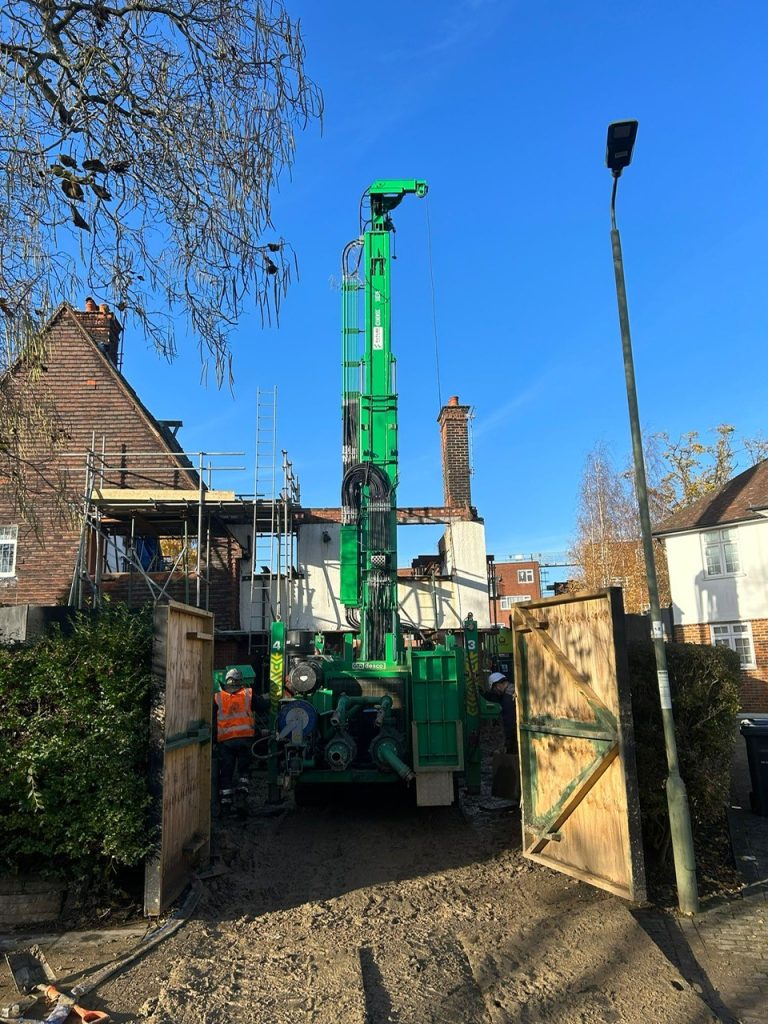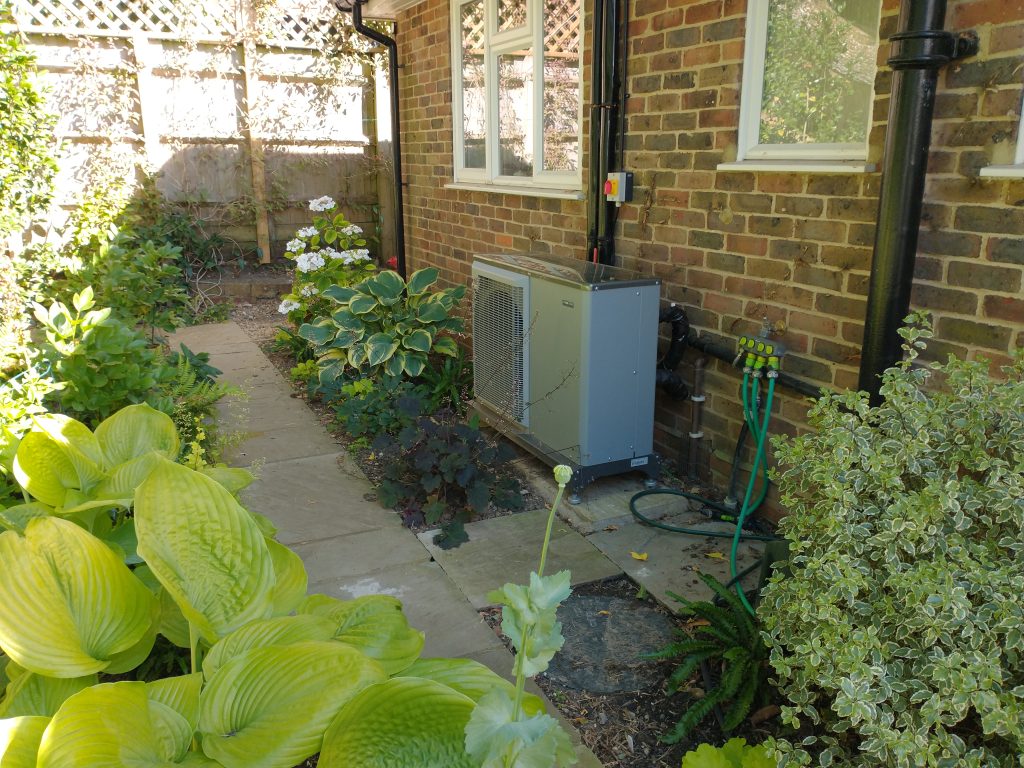Choosing the best heating system for your home is a significant decision. Two of the most energy-efficient and sustainable options are ground source heat pumps (GSHP) and air source heat pumps (ASHP). While both systems reduce your reliance on traditional fossil fuels, they differ in cost, installation, efficiency, and suitability. In this article, we’ll compare ground source heat pumps vs air source heat pumps, helping you make an informed decision.
What is a Ground Source Heat Pump?
A ground source heat pump (GSHP) extracts heat from the ground using an arrangement of underground pipes. These pipes, filled with a water and antifreeze mixture, absorb thermal energy from the earth. This heat is then transferred into your home via a refrigeration process to provide heating and hot water. GSHPs are highly efficient and perform consistently, regardless of the external weather.
Some key benefits of a ground source heat pump include:
- High efficiency: Since ground temperatures are relatively stable, GSHPs can deliver 2-6 times more heat energy than the electricity they consume, making them incredibly efficient. They are typically around 18% more efficient than ASHPs when doing central heating.
- Long-term savings: Although the installation costs are higher, the long-term savings on energy bills can make it a cost-effective option.
- Aesthetics: While there is a lot of hassle digging up your garden initially, GSHPs mean there are no external eye sores and no noise pollution.
- Low environmental impact: By reducing reliance on fossil fuels, GSHPs contribute to lowering your home’s carbon footprint.
What is an Air Source Heat Pump?
An air source heat pump (ASHP) works by extracting heat from the outside air, even in colder conditions. Unlike GSHPs, ASHPs do not require underground pipes, making them easier and more affordable to install. The efficiency of ASHPs varies with the outdoor temperature. When it is warmer than 7°c outside, ASHPs are more efficient than GSHPs
Some advantages of air source heat pumps include:
- Lower installation cost: ASHPs are easier and less expensive to install since they only require a unit to be placed outside your home, without any need for excavation of your land.
- Versatility: ASHPs can be used in almost any property, making them a flexible choice for property owners with limited outdoor space.
- Renewable energy source: ASHPs also reduce dependence on non-renewable energy sources, reducing your carbon footprint.
Ground Source Heat Pump vs Air Source Heat Pump: Key Differences
Installation process
Installing a GSHP involves digging trenches or drilling boreholes to lay the underground pipes. This makes the installation more complex and time-consuming, especially for smaller properties with limited outdoor space. However, the underground system is discreet and requires minimal maintenance once installed.
In contrast, an ASHP installation is quicker and less disruptive. It requires an external unit, similar to an air conditioning unit, to be placed outside your home.
Efficiency and performance
Ground source heat pumps tend to be more efficient because most of the central heating takes place when there are lower outdoor temperatures, when GSHPs are more efficient.
the ground temperature remains constant throughout the year, ensuring a steady supply of heat even in freezing conditions. GSHPs are especially beneficial in colder climates where air temperatures drop significantly.
Air source heat pumps, while still efficient, can struggle during extremely cold weather as the outside air temperature drops. However, modern ASHPs are designed to operate efficiently in colder climates, though their efficiency may still dip during the coldest months.
Cost comparison
One of the main differences between GSHP and ASHP is the initial cost. GSHPs generally have higher upfront costs due to the groundworks needed for installation. However, they are often more efficient in the long run, which can lead to significant savings on energy bills over time.
ASHPs, on the other hand, are less expensive to install but may have higher running costs depending on the external temperature and your home’s insulation. For homeowners looking for a more affordable entry point to renewable energy heating, ASHPs are often the preferred choice.
Environmental impact
Both heat pump systems are environmentally friendly, using renewable energy sources to heat your home. GSHPs generally have a lower carbon footprint because of their higher efficiency, especially in cold climates. However, ASHPs also provide significant reductions in greenhouse gas emissions compared to traditional heating systems like gas or oil boilers.
Suitability for different properties
A GSHP is most suitable for properties with ample outdoor space, where digging for underground pipes is feasible. The higher upfront cost may be justified for properties looking to reduce long-term energy bills significantly.
On the other hand, ASHPs are ideal for homes with limited outdoor space, as they only require an outdoor unit. They’re also a better choice for homeowners on a tighter budget or those who don’t want the disruption of extensive excavation.
Conclusion: Which Heat Pump is Right for You?
Choosing between a ground source heat pump and an air source heat pump depends on various factors, including your budget, property size, and long-term energy-saving goals. If you have a property with sufficient outdoor space and are looking for maximum efficiency, a ground source heat pump might be the best option. However, if you’re looking for a more affordable and versatile solution, an air source heat pump could be the right choice for your home.
Both systems provide an eco-friendly, energy-efficient alternative to traditional heating methods. To explore which option is best for you, contact Better Planet UK today to speak with an expert and learn how you can make your home more energy-efficient with a heat pump.
by Oliver Larsson, Sales Director














